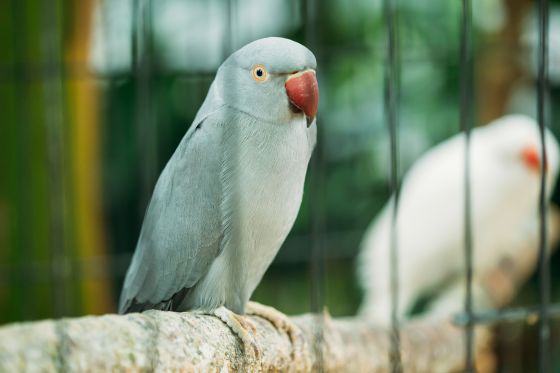What is the 'power of voice' that I noticed when I couldn't make a voice normally?

Humans can
The day my voice broke: what an injury taught me about the power of speech | Music | The Guardian
https://www.theguardian.com/music/2021/jan/19/vocal-polyps-injury-singing-john-colapinto-steven-zeitels?src=longreads
One day a few years ago, Mr. Kolapinto was invited by his boss to join the band as a vocalist. Mr. Kolapinto, who agreed to join the band, participated in the band practice about twice a week. Mr. Kolapinto had no experience of receiving voice training and did not know that the muscles and mucous membranes that make up the vocal cords are easily damaged. Mr. Korapinto, who repeatedly sang enthusiastically every time he practiced, noticed that his voice gradually faded. Still, Mr. Korapinto continued to practice, and in the live performance, his vocal cords were exhausted to the extent that the treble could not be uttered correctly.

Before and after the live, Mr. Korapinto's voice changed to a dry voice. One day, when the situation lasted for about three months, Mr. Kolapinto was told by a voice trainer woman who happened to be in the elevator, 'Your voice is in a serious condition.' A female voice trainer said, 'We use whole body muscles such as abs, shoulders, and back when singing and talking. You are overworking your whole body muscles to compensate for vocal cord abnormalities. That's it. ' When Mr. Kolapinto told his wife about this, he suggested that he should go to the hospital because he may have a tumor in his throat.
After seeing an otolaryngologist at his wife's suggestion, Kolapinto is shown to the doctor an image of his vocal cords with internal bleeding and a tumor. Kolapinto was offered surgery to remove the tumor by his doctor, which required a lot of money and six weeks of rest. At that time, Mr. Kolapinto was worried about his voice by his family and colleagues, but he refused the proposal for surgery because he thought that it did not affect his daily conversation and work. After that, Kolapinto found a way to speak out without straining his body and left the vocal cord tumor for more than 10 years until late 2012.

In 2012, Kolapinto called Stephen Seitels, who was in charge of vocal cord surgery for popular singer-songwriter
'You won't notice how faint your voice is, and the people around you won't point out, but your voice is very faint. The vocal cords of those with tumors It's only working 3-4% of normal, 'he told Korapinto. 'Your voice has no speed or height, and you can't express your emotions correctly,' said Zytels.
Humans express their emotions by adding speed to their voices and making height differences. However, since Mr. Kolapinto's vocal cords are only functioning 3-4%, he can only utter a monotonous voice, giving the impression that he is 'monotonous, unenthusiastic, and lacking in emotions' to the person with whom he talks. It was said that it was. Following the results of this examination, Mr. Kolapinto decided to reconsider the 'power of voice' of humans.
Mammals and birds make voices to convey something, but animals such as birds, dogs, chimpanzees, and dolphins make voices only to express emotions such as fear, anger, and hunger. Parrots can also imitate the human voice, but they do not understand the meaning of the words. For this reason, Korapinto says that humans are the only animals that have succeeded in connecting 'sounds' and 'things that exist in the world.'

Humans, who move slowly compared to other animals and are physically weak, have jumped to the top of the food chain by cooperating with each other using voice and forming a larger group than other animals. In addition, the voice helped to refer to past and future events, hint at non-existent people, and unravel abstract philosophy. Thus, voice has contributed to the development of human culture as the main method of human communication until 5000 years before the invention of letters, Kolapinto points out.
The voice color changes not only due to the shape of the vocal cords and throat inherited from the parents, but also due to the accents peculiar to the area where the person grew up and the differences in personality such as extrovert / introvert and positive / passive. Since humans can distinguish the subtle differences in voice formed by these factors, voice may affect social status and romance.

'Everyone must have felt uncomfortable when listening to their recorded voice. This uncomfortable feeling is actually the personality that they are unknowingly trying to convey to their surroundings. The cause is a deviation from the personality that can be imagined from the voice that is being uttered, 'he said, pointing out that humans use their voices to communicate their humanity.
Related Posts:
in Science, Posted by log1o_hf







